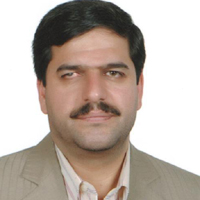The Perceptions of Mashhad Pilgrims and Health Care Providers Regarding Health and Medical Services at the End of Lunar Month of Safar: A Qualitative Analysis
Author(s):
Article Type:
Research/Original Article (دارای رتبه معتبر)
Abstract:
Introduction
"Health for All by 2000" was launched by WHO in 1978 and is based on primary healthcare availability worldwide. During the month of Safar, many people from neighboring cities and countries travel to Mashhad. Since the qualitative approach can lead to a better understanding of access to healthcare from the perception of consumers, this study aimed to assess the perception of Pilgrims and healthcare providers of healthcare services and gain more profound knowledge about healthcare consumers’ experiences. Methods
This qualitative study was conducted in Mashhad during Safar based on conventional content analysis from September 20-27, 2022. This study used a semi-structured in-depth interview on 36 participants, including pilgrims (n=27) and healthcare providers (n=9) such as medical doctors, nurses, and health experts selected through purposeful sampling. The interviews were transcribed word for word. The MAXqda software and Graneheim and Lundman’s qualitative content analysis were used for data analysis. Results
Data analysis revealed three categories, including 1. Understanding the challenges of the treatment services in terms of three subcategories: A. Lack of medical doctors, drug shortages, and higher prices of medicines, B. Experiencing the diseases (skin, cardiovascular diseases, poisoning, and digestive problems, musculoskeletal pain and asthma), and C. Lack of an appropriate place for patient examination and serum injection. 2. Understanding the challenges of health services, including three subcategories: A. Time and place insufficiency of services, B. Lack of access to sanitary detergents, C. Improper cleaning of resting spaces and places, and finally, 3. Understanding the challenges of welfare services, including two subcategories: A. Inadequacy and lack of access to the appropriate rest place, and B. poor quality and sortage of food. Conclusions
The results indicated that access to healthcare, treatment, and welfare is more than just these services. Health policymakers’ commitment to improving healthcare equity, hopefully, leads to positive changes in the healthcare system. Therefore, enhancing social participation in the healthcare system and providing comprehensive education on the optimal use of healthcare services is necessary to empower pilgrims to access better healthcare.Keywords:
Language:
English
Published:
Journal of Nutrition, Fasting and Health, Volume:11 Issue: 2, Spring 2023
Pages:
95 to 103
https://magiran.com/p2615328
مقالات دیگری از این نویسنده (گان)
-
The Predictive Role of MicroRNA19-b in Myocardial Infarction in Rat
Danial Falizkaran Yazdi, Reza Sahebi, Malihe Aghasizadeh, Naghmeh Azadi, Susan Darroudi, Hamideh Ghazizadeh, Maryam Mohammadi Bajgiran, Gordon A. Ferns, Reza Assaran-Darban, Majid Ghayour-Mobarhan *
Journal of Cardio -Thoracic Medicine, Spring 2024 -
Comparison of high-density lipoprotein (HDL) level and function for the diagnosis of coronary artery disease
Shima Yazdandoust, Seyyed Mohammadreza Parizadeh, Majid Ghayour-Mobarhan*, Parichehreh Yaghmaei, Amir Hossein Sahebkar
New Cellular & Molecular Biotechnology Journal, -
The Effect of Carob (Ceratonia siliqua) Bean Extract on Semen Parameters and Male Infertility in Human and Animal Experimental Studies: A Systematic Review
Seyyedeh Adeleh Rahmanian, Mahin Kiyani Mask, Fatemeh Sadat Mousavi, *
Iranina Journal of Obstetrics Gynecology and Infertility, -
The Effects of Electromagnetic Field (EMF) on Pregnancy and Postpartum Outcomes: A Systematic Review
, Maryam Aradmehr *, Seyyedeh Adeleh Rahmanian, Sedigheh Ahmadi
Iranina Journal of Obstetrics Gynecology and Infertility,




